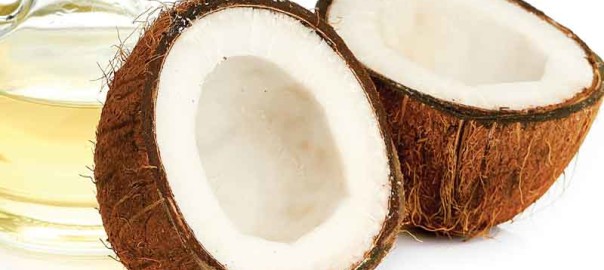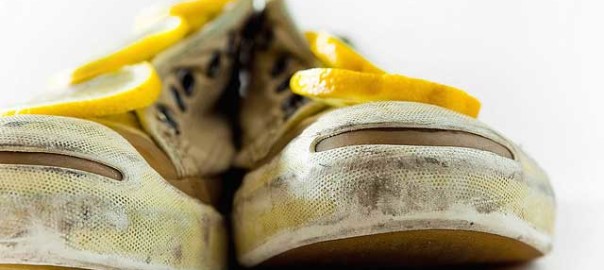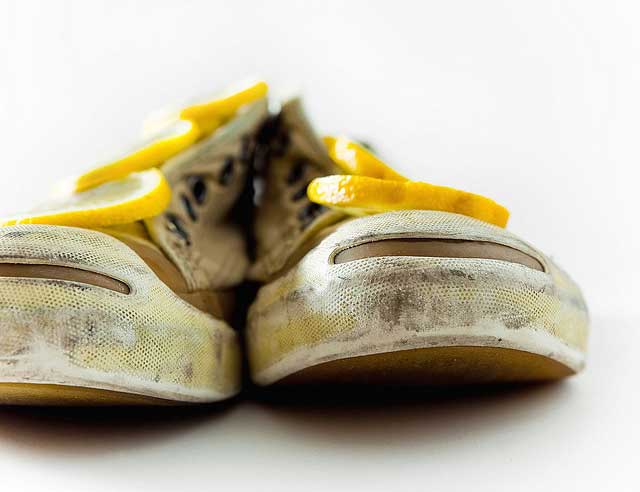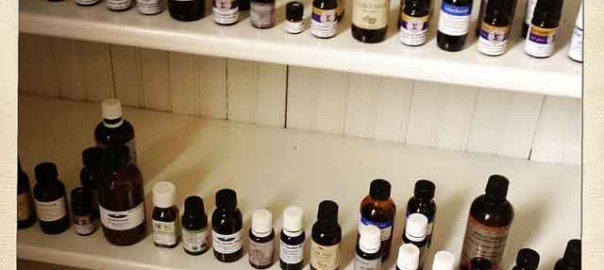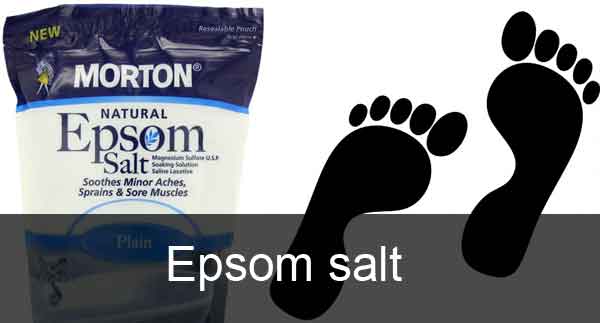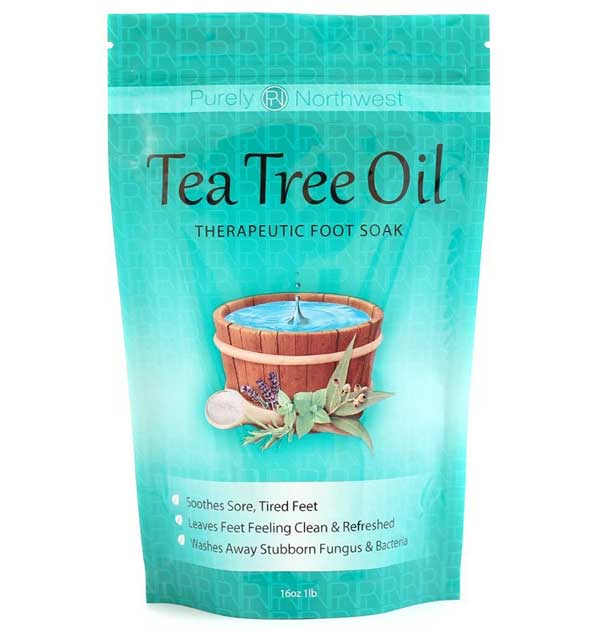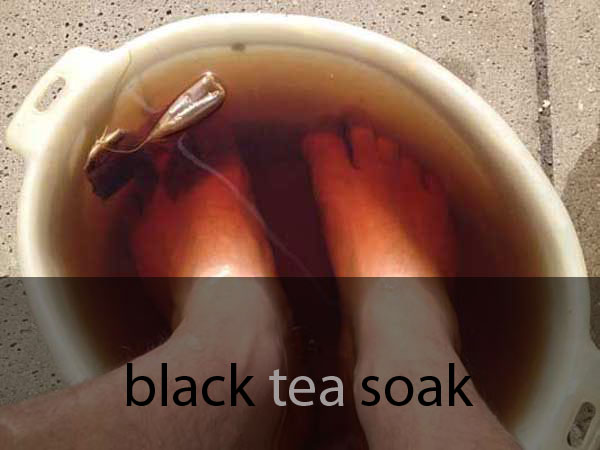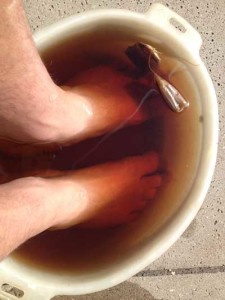Coconut oil is the prodigal son of the natural remedies world. It has so many uses that entire books have been dedicated to it.
Coconut oil can do anything from helping you lose weight to alleviating allergies to fighting dandruff.
One of the many benefits of coconut oil is its ability to fight foot fungus most commonly associated with athlete’s foot.
It can even be used to help sweating of the feet, leaving your feet clean and dry with no bad foot odor, all while providing a natural solution with no harmful side effects. Three properties of coconut oil work together to provide this benefit.
1. Antiperspirant- Coconut Oil for Sweating
Coconut oil has actually been utilized in some parts of world, particularly Asian nations like India and Sri Lanka for different purposes.
One of the uses of this oil as a massage oil for its wholesome benefits for the body. If you do not deal with generalized sweating, you can leave out the massage part and simply use coconut oil under arms.
By rubbing coconut oil underneath your armpits or on the bottoms of your feet, and letting it absorb into your skin, you can go about your day free from the fear of sweating.
How does it work?
Coconut oil contains lauric acid, a fatty acid known to kill bacteria that can often cause sweating with odor in a person’s armpits. To prevent this odor, you have to prevent yourself from sweating in the first place.
The light fragrance of the oil also keep you refreshingly fresh. You simply need to take a little coconut oil onto your fingers and rub it under your arms to obtain rid of sweating.
Or make this natural antiperspirant utilizing coconut oil and baking soda at home.
Antiperspirants are different from deodorants in that they not only prevent the smell, but they first stop you from sweating that produces the unpleasant odor. Whereas deodorant is anti-smell, antiperspirant is anti-sweat.
Does it stain socks, shoes, and clothes?
Among the myths connected with coconut oil is that it spots clothes but if you take a percentage of oil and massage it well into your skin, it will not even stain your garments.
Oils tend to leave greasy stains on clothing, but coconut oil’s properties make it less likely to stain if used in moderate amounts.
More about antiperspirants for feet.
2. Coconut oil as a foot deodorant
Aside from simply stopping the sweating, coconut oil also works well as a deodorant. Its naturally pleasant scent and quick absorption into the skin make it ideal for both an antiperspirant and deodorant.
Your armpits will smell great, and you only need a little coconut oil for it to work. Coconut oil is sold for as low as $7 in a pretty sizable jar, which is much lower than clinical strength or prescribed deodorants/antiperspirants are sold for. It saves you money and is all-natural.
3. Coconut oil softens and moisturizes your feet
Coconut oil also works as a top-notch moisturizer. It contains skin-healthy vitamins that soften dull, dry or flaky skin and leave it hydrated and soft to the touch. This moisturizing agent works on any parts of the body.
Since foot odor causing bacteria feed on skin flakes, moisturizing can help control stinky feet.
Between working out and running around, our feet get a beating on a day-to-day basis. Before bed, soften cracked, rough skin and calluses by exfoliating your feet and then applying a generous layer of coconut oil.
Since it has natural antibacterial properties, it’ll deodorize as it softens. Then slip on some socks to wake up with much smoother, better smelling soles.
Bonus: To enhance its benefits, add a drop or two of tea tree oil to the mix and apply both before bed and throughout the day. Treating your feet to this combo not only keeps stinky smells at bay, but may also help treat Athlete’s foot.
Coconut oil is great for other body parts too.
Use it on your lips as substitute for balm or chapstick. Rub it on your face after cleansing your skin for a facial moisturizer. It can even be used in homemade scrubs to exfoliate.
4. Cure foot fungus a.k.a. Athletes foot
Coconut oil has powerful anti-fungal properties. These properties are due largely to the presence of lauric acid.
Your body converts lauric acid into monolaurin which has been shown to control the activity of bacteria, viruses, and fungi.
Coconut oil has been proven effective in killing the tinea pedis fungus and at reducing the scaly, red rash caused by the fungus.
In addition to fighting back against unwanted fungi, coconut oil provides a layer of protection for the skin.
It is an effective and deeply nourishing moisturizer that can replace other foot lotions permanently. There are two ways to use coconut oil to attack Athlete’s Foot.
Antibiotics and anti-fungal medications can be expensive, and many times the side effects aren’t worth the fuss to get them.
Some have even found that these medications don’t solve the problem, like blogger Seth Roberts when the fungus tinea pedis made a reappearance shortly after he had cleared it up with medication.
Coconut oil’s fatty acids not only kill bacteria that cause body odor, but it also eliminates “viruses, fungi and protozoa,” which lab tests have verified. It has even been shown to prevent absorption of bacteria into the body by creating a protective layer across the skin.
The bacteria found in athlete’s foot are quickly eradicated by coconut oil’s lauric acid, which when used against the fungus, is
“converted into monolaurin, a compound that is highly toxic to viruses, bacteria, funguses and other microorganisms because of its ability to disrupt their lipid membranes and virtually destroy them.”
With its anti-inflammatory and anti-itch properties, coconut oil can also soothe the uncomfortable hot, itchy feeling of athlete’s foot.
Seth does warn that, when using coconut oil as an anti-fungal medicine, it is important not to reinfect your feet with socks or shoes that still have the bacteria on them.
Much like surfaces that have been touched when you have had the flu, your socks and shoes must be sanitized before you can wear them again, otherwise you’ll end up with another case of foot fungus.
Re-contamination can happen easily, so make sure you have a shoe sanitizer on hand, which uses a UV light or ozone to kill up to 99.9% of bacteria when passed over the inside of your shoe.
Learn about tea tree oil for foot fungus.
Wrapping it up
The miracle of coconut oil lends itself to remedies of all sorts. Next time you’re shopping around for a natural cure-all, take a look at the various uses for coconut oil before spending a fortune on prescriptions or beauty products that don’t give you the right bang for your buck. Most likely, you will find the solution in the organic foods aisle in a jar marked “Coconut Oil.”
You may also like:
Image: YouTube.
